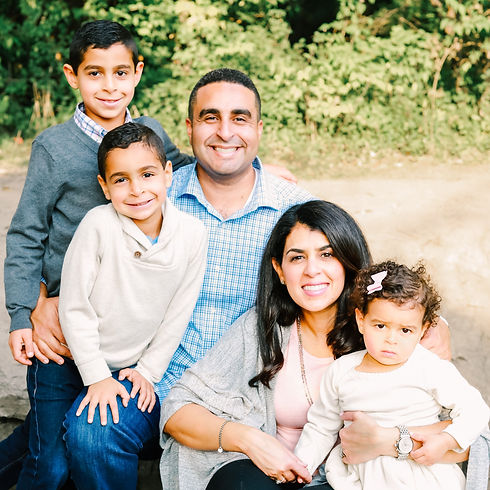
Give Your Child A Beautiful Smile At Vienna Family Dentistry
Because oral health greatly impacts overall health, it’s extremely important to take care of all teeth, including primary (baby) teeth. Primary teeth need the same kind of care and attention as permanent (adult) teeth. Strong, healthy primary teeth are used for biting, chewing, smiling, and even speaking, working together with the lips and tongue to form words. Primary teeth act as placeholders and guides for adult teeth. Taking proper care of teeth and gums prepares a healthier environment for permanent teeth to develop.
Teaching children to properly clean and care for baby teeth will help them develop good oral hygiene habits that carry over into adulthood. While children may not recognize the long-term benefits of daily brushing, flossing, and eating healthy foods, they will recognize the value of instilling good oral hygiene practices at a young age, as adults.
Your Child's First Teeth
Between the ages of approximately six and nine months, baby teeth begin to appear. By the age of three, children should have 20 baby teeth. The sequence of tooth eruption is as follows:
-
Central incisors – bite and cut food
-
Lateral incisors – cut food
-
First molars – grind food
-
Canines (Cuspids) – tear food
-
Second molars – grind food

Your child may experience pain and discomfort as the primary teeth emerge through the gums (teething). To soothe sore gums, gently rub them with a clean finger, the back of a cool spoon, or a wet gauze pad. A cool teething ring can be used, as well.
When your child is two years old, start a daily brushing routine. Use a soft-bristled toothbrush designed for children and a very thin film of fluoride toothpaste. Model how to brush teeth and spit out toothpaste. Have your child try brushing with a wet toothbrush (without toothpaste) to start.
Your Child's First Dental Appointment
Dental visits should begin by a child’s first birthday, according to the American Academy of Pediatric Dentistry. Dentists will check for cavities, make sure teeth are developing correctly, and show your child how to properly care for teeth and gums at home. With regular dental visits, your child will become familiar with the dentist, the staff, and the sights and sounds of the dental office, resulting in a more comfortable experience.
Pediatric Dental Treatments
To prevent tooth decay, save teeth, and, in some instances, replace teeth, pediatric dentists offer a variety of treatment options, such as:
-
Topical Fluoride Treatments - The dentist will apply fluoride, a mineral that strengthens developing teeth and helps prevent tooth decay, directly to your child’s teeth. The concentration of fluoride in this type of treatment is much higher than the amount found in mouth rinses and toothpastes.
-
Dental Sealants – To help prevent tooth decay, a thin plastic coating is applied to small pits and grooves of premolars and molars. This creates a smooth tooth surface for easy cleaning. Sealants can last several years. During regular dental visits, sealants are checked and reapplied, if necessary.
-
Root Canal Therapy – Because primary teeth serve as guides for permanent teeth, losing them too soon may lead to improper bite patterns or speech problems. During a root canal, infected pulp is removed from the decayed tooth, the pulp chamber is cleaned, and a permanent crown is eventually placed. Root canals can save both primary and permanent teeth.
-
Bonding – To fix minor chips and cracks in both primary and permanent teeth, a composite resin that matches the tooth is applied, shaped, and then hardened using an ultraviolet light. The tooth is shaped a final time and then polished.
Orthodontic Concerns
If your child has crooked or crowded teeth that cause bite problems, orthodontic appliances, such as braces or retainers, may be used to reposition and straighten the teeth. Dental professionals can usually detect malocclusions (misaligned teeth) by the time children are seven years old.
Sports & Your Child's Teeth
Custom-made mouthguards are recommended for children who play sports. Custom mouthguards protect the mouth better than mouthguards found on store shelves. Helmets, especially ones with face shields, are also recommended. Athletes who use don’t use such protective equipment are 60 times more likely to suffer dental trauma, according to the American Dental Association (ADA). A small investment now will save you money by preventing costly injuries and, most importantly, keep your child safe.
If you have any concerns about your child’s teeth, call our dental experts at Vienna Family Dentistry & Implant Center today.
